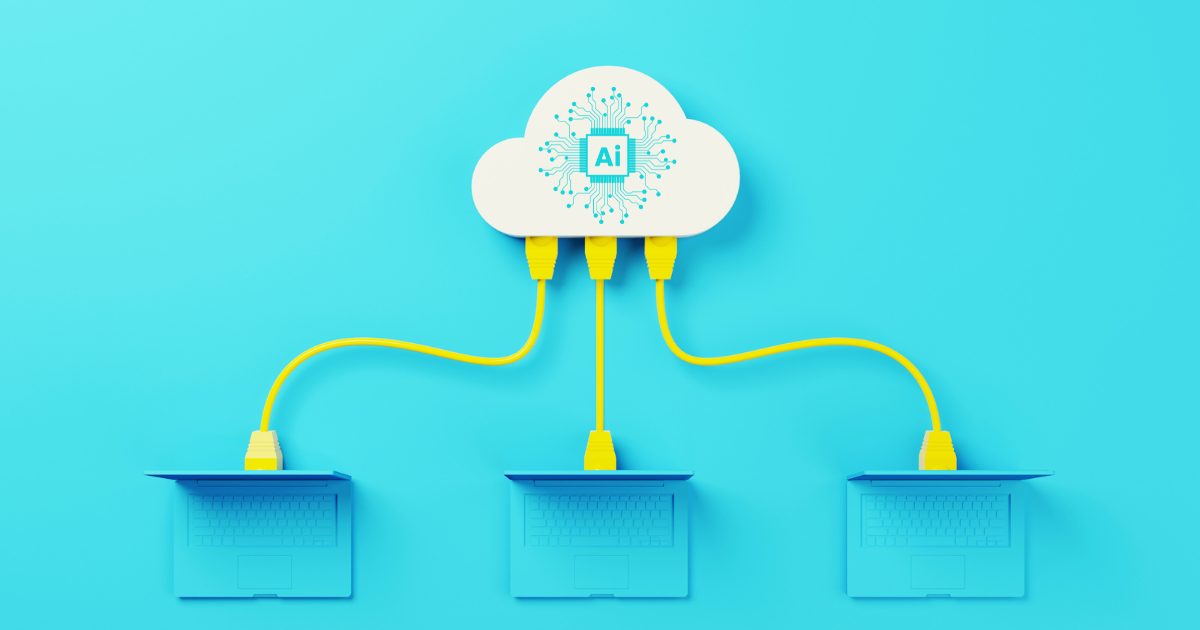Artificial intelligence (AI) has become an essential component of many aspects of automation, as it can analyze data quickly and effectively to identify trends or patterns that can be used for various applications. Automation has had a major impact on businesses, from streamlining operations to enhancing customer experience. By integrating ChatGPT and AI in different areas of business, companies have been able to reduce costs while providing superior services. This article highlights how technologies such as robotics, AI, and chatbots are radically changing the way businesses automate their operations.
Integrating AI technologies with the Microsoft Power Platform
The Microsoft Power Platform is a comprehensive suite of business applications and services that enable users to build, manage, and analyze data. It provides an end-to-end solution for developing custom solutions tailored to the needs of businesses in any industry. The Power Platform enables users to create powerful dashboards and reports with integrated data sources including Azure Data Lake, Dynamics 365, Office 365, SharePoint Online, Power BI, SQL Server Analysis Services (SSAS), Excel Services, and more. Additionally, it can be used for building automated workflows using tools such as Flow Designer and Logic Apps.
One of the main benefits of the Microsoft Power Platform is its ability to integrate with AI technologies as well as chatbots. Microsoft recently announced its integration of ChatGPT with the Power Platform, which indicates Microsoft’s continued investment in AI.
Integrations allow companies to automate processes in customer service or sales activities—among others—by creating intelligent agents that can respond quickly and accurately to customer inquiries or requests without human intervention. For example, a chatbot can provide customers with product information or help them complete their purchase orders faster than ever before. Furthermore, AI technologies can help businesses gain valuable insights from large datasets so they can make better decisions about their operations or marketing strategies.
Finally, another important benefit provided by the Microsoft Power Platform is its scalability. It allows organizations to easily expand their capabilities on demand as their business needs change over time, while still maintaining security controls at all levels within their systems’ architecture framework. With this feature in place, businesses can stay ahead of competitors that might not have access to similar resources or technology offerings. They can also remain competitive in today’s market with improved productivity gains across multiple areas such as customer service response times and cost savings through automation.
Using AI-powered Robotic Process Automation (RPA)
Robotic process automation (RPA) is an advanced automation tool that enables businesses to automate manual and repetitive tasks with minimal human input. RPA works by using software bots or “virtual agents” to perform repetitive tasks such as data entry, copying and pasting information from one application to another, generating reports, etc. By automating these mundane processes, organizations can save time and money while allowing employees to focus on more value-added activities.
Furthermore, RPA systems are designed for integration with AI technologies and chatbots so that the system can become more intelligent over time. This means it can take on complex decision-making processes which would otherwise require manual involvement from a team of experts.
For example, AI-powered RPA could help healthcare providers identify potential fraud cases in insurance claims quickly and accurately by analyzing large volumes of customer data. In addition, this same technology can be used for predictive analytics—predicting future outcomes based off existing datasets—helping organizations make better decisions about their operations or marketing strategies faster than with traditional methods alone.
Finally, the scalability of RPA makes it ideal for any sized business regardless of their budget or resources available; since the platform is cloud based, there is no need for expensive hardware investments. Businesses can get started right away without any additional costs or maintenance overhead associated with hosting their own servers locally on premises. Businesses can access enterprise grade capabilities without having to worry about investing heavily upfront.
Increasing productivity with Automation Providers
Automation providers are companies that provide software, tools, and services to help businesses automate processes and improve efficiency. Automation technologies include RPA, machine learning, natural language processing (NLP), computer vision, and other AI techniques. The different types of automation providers vary in their capabilities and offerings, but they all offer the same basic goal: to increase productivity while reducing costs.
RPA requires no programming knowledge and can be applied across multiple industries including healthcare, finance, retail, media and entertainment, and more. Additionally, RPA systems typically integrate with AI technologies like NLP which allows them to understand human conversations naturally without needing explicit commands from users every time a task needs to be performed.
Another type of automation provider is machine learning, which uses advanced algorithms to analyze large datasets in order to identify patterns or trends that can be used for various applications such as predictive analytics or fraud detection. For example, a machine learning system could analyze patient records to detect potential cases of fraud within a healthcare organization’s insurance claims database without requiring extensive manual review from staff members.
Finally, businesses are increasingly using chatbots powered by AI capabilities like NLP for automated customer service interactions or sales inquiries/requests from customers via chat rooms or messaging apps such as WhatsApp. By leveraging these powerful AI-driven chatbots, companies have been able reduce customer support response times significantly while still providing personalized services at scale—allowing them to deliver superior experiences for customers with minimal effort required on their part .
The Future of Automation
The future of automation is one that is filled with endless possibilities. Technologies such as robotics, AI, and chatbots are radically changing the way businesses automate their operations. By leveraging these powerful tools, companies can reduce costs while increasing efficiency and productivity. AI and chatbots like ChatGPT have revolutionized the world of automation by enabling businesses to automate manual tasks with minimal human input while still providing customers with personalized services at scale.
AI outputs will only get better over time. RPA systems integrate with other AI technologies such as NLP, computer vision, and machine learning so they can become more intelligent over time by understanding customer requests or analyzing large datasets to detect patterns and trends quickly and accurately.
Looking toward the future, advancements in automation technology are expected to continue rapidly due improvements in AI algorithms and chatbots, which will make automating processes easier than before.
Don’t get left behind! As these trends continue to evolve, organizations should take advantage of AI technologies to stay ahead of the curve and remain competitive. If you need support with developing an automation strategy, Elantis can help. Contact us today and we will connect you with one of our automation specialists.



























